Writing: Serial Characters and the Book Deal
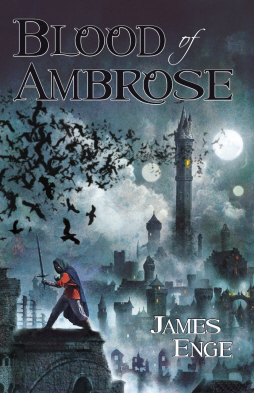
A growing number of Black Gate authors have moved on to book deals, and some were published novelists before they appeared in the magazine.
Two of us, James Enge and myself, landed book deals featuring recurring characters that had appeared in Black Gate short stories.
They were the Dabir & Asim stories for me (“Whispers from the Stone” and “Sight of Vengeance“) and the Morlock tales for James (six appearances in BG so far, starting with “Turn Up This Crooked Way” and “Payment Deferred,” and most recently the novella “Destroyer” in Black Gate 14).
Back before James got nominated for the World Fantasy Award in the Best Novel category (for his first novel, no less! — that’s Blood of Ambrose, if you don’t have a copy yet) the two of us got talking one day about the connections between magazine sales and book deals.
We decided to turn the thing into a public back-and-forth discussion about writing serial fantasy characters, starting with a look at the idea that short story successes lead naturally to selling books.
I’ve captured and condensed that conversation here for your enjoyment.

The old saw was that selling short stories led to selling novels, and at one point it seems to have been true. I think a lot of folks today believe just the opposite and see no connection between short story sales and book deals; it’s my own conviction that the truth’s more complicated.
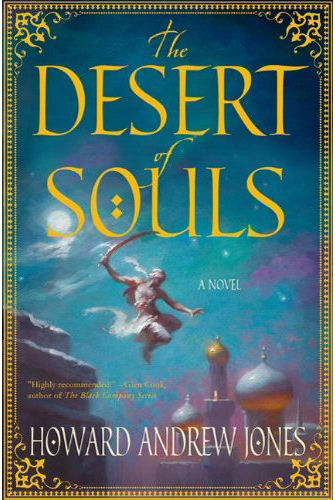
Neither my publisher nor my agent had ever read any of my short fiction, so you could say that writing the short stories didn’t help me at all, but that’s faulty reasoning.
Over the course of working with the characters and hearing their voices in my head for more than ten years I got to know them very well. I can predict how they’ll react, even how they’ll sound, without having to think about it — they’re “real” to me.
Aside from familiarizing me with the characters, short story composition introduced me to the industry and helped establish friends and make connections.
I almost didn’t jump from short stories to novels with Dabir and Asim, although I’d been interested in doing so for years. It seems obvious, now: when I would send out a Dabir and Asim story, it would sell (maybe not immediately, but it would sell), so why didn’t I jump into writing a novel with them sooner? Well, I’d heard that historical fiction wasn’t really a hot commodity anymore. Just goes to show you how much attention you should pay to fads. I always thought I knew enough to ignore fads, that drafting THIS or THAT kind of fiction because it was popular this week was a bad idea because it would probably no longer be a fad when I was finished.
I didn’t realize I was falling prey to fads by NOT writing something that WASN’T in style. I finally decided that as it looked like I was writing novels purely to entertain myself, I might as well write what I loved.
What’s your perspective? Do you think short story sales lead to novel contracts?
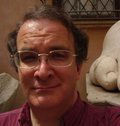
If think that if the old saw was ever true, it’s not true anymore. Arguably, people who are interested in doing book length work should go right at it: it’s a tough learning curve, and you can never start too soon. But I know, in my case, it was useful to work on short fiction. Because I started out writing novels, and they were dreck.
Writing stories at shorter lengths was always something I wanted to do, too, so I didn’t think taking time to figure that out (or starting to figure it out) was a diversion from my major writing goals. But I think that, when I turned back to write something book length I ended up writing a better “first novel” (which was really something like my fourth novel) because I’d spent some time working at shorter stuff.
On the other hand, novels and short stories are different forms: a novel is not just a really long short story (not if it’s any good). But a short story writer learns how to end a story. That’s one of the most important things a writer can learn: how to “bite the matter off with a smile.”
What do you think about jumping from short stories to novels? Any big pitfalls or benefits come to mind?

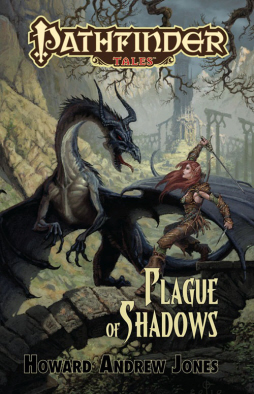
It’s interesting that you mentioned learning how to end from writing short stories, because one of my most important lessons was learning how to start a tale, to know how many characters I could use in a scene before the reader and I both lost track of them.
For my kind of ensemble cast (adventure writing with doses of mystery) I had to get the right balance. Introduce too many people and the reader won’t know them well enough to keep track of who they are. Introduce too few and there aren’t enough interesting fireworks going off in the dialogue. Other writers seem perfectly capable of juggling more characters, but it just didn’t work for me.
I think a crucial lesson for the journeyman writer is to understand what tactics you can lift from writers you love, and which ones don’t work for you at all, no matter that they’re brilliantly handled by others. I had to learn the tougher trick of distinguishing between techniques I hadn’t mastered yet and ones that weren’t right for me.
You mention pitfalls — which ones did you leap across and which ones swallowed you?
And let’s talk serial characters. With Morlock you’ve created Black Gate‘s most popular recurring character.
Do you think, like Arthur Conan Doyle, there will come a point when you’re sick of the fellow and just want to kill him off, or do you have an entire arc for him you’d like to explore?

I think the time may come when Morlock will try and kill me off, with all the stuff I put him through. But I can’t see me getting tired of him anytime soon.
I did set myself a rule in his most recent outing (The Wolf Age), though: everyone in the book was wearing a red shirt, as it were, including Morlock.
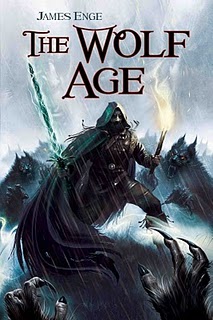
If something screwed up the arc I have planned for Morlock’s life, so be it: I figured I’d do it if it worked for that specific story. It was tremendously liberating, but a little worrisome.
Sometimes it’s hard to tell what pitfalls I’ve jumped over and which ones I’ve dropped into: falling feels like flying until you hit the ground.
But I think if I had planned more shrewdly I might have tried to construct books that were more like each other, so that people would have a better sense of what to expect from the next one in the series. Then again, shrewdness hasn’t exactly been the watchword of my writing career so far.
One thing that intrigues me about Dabir and Asim’s stories is that they merge several genres — mystery, and adventure fantasy, and historical fiction. Is it hard to maintain that balance in a story of bigger scope? Does the long form seem to favor one of these genres over the other?

I suppose I’ve found that it’s actually easier to balance things in a story of larger scope, although the genre percentages may change. For instance, there can’t be just one mystery, there has to be a series of secrets to be discovered and revealed. In the end it may be that the adventure element predominates to keep the whole thing moving along.
Certainly I’m having to do more historical research because I’m not just taking a snapshot of a setting, as I often did for a short story. I’m trying to bring the whole ancient middle-east to life. Sooner or later I’m going to have to take another stab at learning Arabic and maybe even Persian so I can have access to more sources.
While I’m well versed in sword-and-sorcery and have read fairly widely among the classic historical swashbucklers, until recently I haven’t been much of a mystery reader. In longer works I have to remind myself not to reveal too much too soon, or, conversely, not to keep the readers waiting too long to reveal another bit of information. Good mysteries handle these features well. But maybe these elements are just things to keep in mind for successful storytelling, mystery or otherwise.
The Morlock stories jump from different time periods in his life. Will the Morlock novels be the same way? And, incidentally, will there BE more Morlock novels? Surely I’m not the only one asking and wanting the answer to be yes.
Lastly, if there were five things you could tell young James Enge about writing that would have saved him some time, what would they have been?

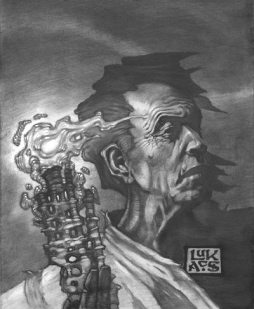
Re the Morlock novels: I’ve been insistent, even a little hysterical maybe, about them not being a trilogy, just three standalone novels. But they do fall in a chronological sequence; it just made sense to write them that way. There are no more books slated for publication at the moment, but it’s unlikely that I’ll stop writing about Morlock at this late date.
The projects I have in hand at the moment are non-Morlock stuff, but I have been doing a little writing toward a novel set much earlier in Morlock’s life, a sort of origin story, I suppose.
Five things I’d tell young James Enge? Hm. I wonder if he’d listen. He often had a habit of seeming to listen to good advice, and then going off and doing what he wanted to do anyway.
And the technical stuff about markets wouldn’t be very useful: everything has changed in the past few years and it seems likely to go on changing.
I guess I’d recommend he get an agent. It’s not impossible to get published without one, but it’s less likely, and it’s always smart to get the odds working for you rather than against you. I’d tell him to listen to his sordid muse: pretentious dreck is still dreck, and I wrote a lot of it when I was finding my way.
I’d suggest he keep an eye peeled for that new adventure fantasy magazine Black Gate, edited by mad genius John O’Neill; it’ll be a big deal. I’d tell him to eat something besides ramen every now and then and not waste money on the Star Wars prequels.
I’m not sure if that’s five things, but I’m pretty sure that’s as much as he’d sit still for.
What about you? Are there things you know now you wish you’d known then?

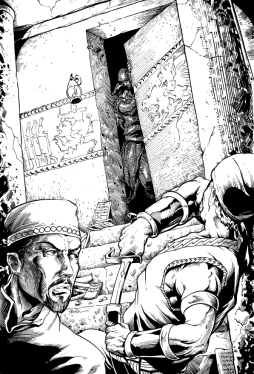
These days I always write down a list of “Writing Tips” at the front of every one of my writing notebooks, and I leave a little room for new ones I discover. “Writing Tips” is a more succinct header than “Mistakes I’m in the Habit of Making and Should Watch Out For.”
I’d love to be able to go back in time and hand Howard this list. I’d also present him with other useful advice, but who knows whether he could digest any of it. He used to be a lot more easily distracted and eager to try out new things before he really knew what he was doing.
I’d tell him to make sure he knew what every character in the scene wanted before he started writing so that the characters moved the plot rather than the plot moving them like cardboard cutouts. I’d tell him that background details don’t have to be frontloaded and are better revealed gradually, and that likewise readers should be introduced to the characters and some minor issues before big plot arcs get launched.
I’d tell him that in his kind of writing you need to make sure there’s a clear through line from act to act and scene to scene that can be summed up in a few lines — if it takes longer than that to explain what’s going on, it’s probably too convoluted. (Here’s a good for instance of a clear through line: Indy’s after the headpiece to the staff of Ra so he can find out where to dig for the Ark of the Covenant. )
I’d counsel him that while he should be conscious of his weaknesses and work to address them he should play to his strengths as well.
There’s lots more I’d say, but since I can’t, I’ll leave it there.
Both James and myself would like to thank Black Gate‘s John O’Neill for giving us a welcoming campfire where we were encouraged to write of what we love. Editors have made a big difference both our lives. In my case, without the encouragement and support of editors like George Smith, Fraser Ronald, Daniel Blackston, Chris Cevasco and Eric Flint, I might not have found my way to Black Gate.
Interesting chat. Thanks for the time-travel-granted advice 😉
Great chat, great post, great advice all around from two great gents! Hat’s off to the two of you and, once again, Mr. O’Neill.
Howard, your cover looks beautiful! You must be so pleased! Congratulations! An historical mystery adventure amid MINARETS even! Totally buying a copy as soon as ever it reaches my local Amazon.com.
James, I’m very glad you won’t tire of Morlock any time soon. Am VERY curious, also, as to your new endeavors, about which I’ve read only a little. In the meantime, how many more days until Wolf Age comes out???
Gentlemen, I enjoyed this conversation and will share it. Thank you.
[…] few months ago James Enge and I sat down for a cyber conversation about serial characters and the book deal. We both had a lot of fun, and the the exchange seemed […]